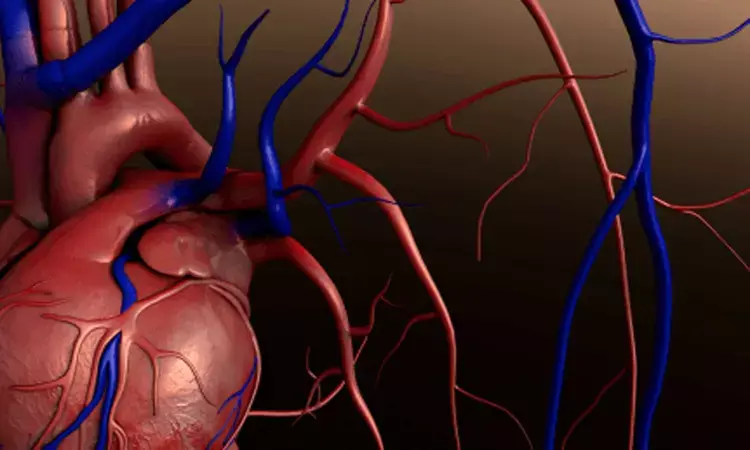- Home
- Medical news & Guidelines
- Anesthesiology
- Cardiology and CTVS
- Critical Care
- Dentistry
- Dermatology
- Diabetes and Endocrinology
- ENT
- Gastroenterology
- Medicine
- Nephrology
- Neurology
- Obstretics-Gynaecology
- Oncology
- Ophthalmology
- Orthopaedics
- Pediatrics-Neonatology
- Psychiatry
- Pulmonology
- Radiology
- Surgery
- Urology
- Laboratory Medicine
- Diet
- Nursing
- Paramedical
- Physiotherapy
- Health news
- Fact Check
- Bone Health Fact Check
- Brain Health Fact Check
- Cancer Related Fact Check
- Child Care Fact Check
- Dental and oral health fact check
- Diabetes and metabolic health fact check
- Diet and Nutrition Fact Check
- Eye and ENT Care Fact Check
- Fitness fact check
- Gut health fact check
- Heart health fact check
- Kidney health fact check
- Medical education fact check
- Men's health fact check
- Respiratory fact check
- Skin and hair care fact check
- Vaccine and Immunization fact check
- Women's health fact check
- AYUSH
- State News
- Andaman and Nicobar Islands
- Andhra Pradesh
- Arunachal Pradesh
- Assam
- Bihar
- Chandigarh
- Chattisgarh
- Dadra and Nagar Haveli
- Daman and Diu
- Delhi
- Goa
- Gujarat
- Haryana
- Himachal Pradesh
- Jammu & Kashmir
- Jharkhand
- Karnataka
- Kerala
- Ladakh
- Lakshadweep
- Madhya Pradesh
- Maharashtra
- Manipur
- Meghalaya
- Mizoram
- Nagaland
- Odisha
- Puducherry
- Punjab
- Rajasthan
- Sikkim
- Tamil Nadu
- Telangana
- Tripura
- Uttar Pradesh
- Uttrakhand
- West Bengal
- Medical Education
- Industry
Multivessel PCI decreases reinfarction risk in STEMI patients: JACC

USA: Multivessel PCI versus culprit-vessel only PCI lowers risk for reinfarction without any difference in all-cause mortality in STEMI patients, according to a recent study published in the journal JACC: Cardiovascular Interventions. The study included patients with STEMI and multivessel CAD who underwent PCI, it found that those who had multivessel PCI had a lower reinfarction rate than those who had culprit-vessel-only PCI.
About one-half of the patients with ST-segment elevation myocardial infarction (STEMI) have multivessel coronary artery disease (CAD). Randomized controlled trials comparing multivessel and culprit vessel–only PCI have yielded conflicting results regarding the benefits of a multivessel PCI strategy.
The goal of this systematic review and meta-analysis by Varunsiri Atti, Department of Internal Medicine, Michigan State University, Lansing, Michigan, and colleagues was to provide a comprehensive evaluation of contemporary randomized trials that addressed the safety and efficacy of multivessel versus culprit vessel–only percutaneous coronary intervention (PCI) among patients with STEMI and multivessel CAD.
The researchers performed a comprehensive search of RCTs that compared multivessel PCI with culprit vessel–only PCI fro inception to September 15, 2019. A meta-analysis was performed using a random-effects model to calculate the risk ratio (RR) and 95% confidence interval (CI). Primary efficacy outcomes were all-cause mortality and reinfarction.
A total of 10 RCTs were included consisting of 7,030 patients -- 3,426 underwent multivessel PCI and 3,604 received culprit vessel–only PCI.
Key findings of the study include:
- Compared with culprit vessel–only PCI, multivessel PCI was associated with no significant difference in all-cause mortality (RR: 0.85) and lower risk for reinfarction (RR: 0.69), cardiovascular mortality (RR: 0.71), and repeat revascularization (RR: 0.34).
- Major bleeding (RR: 0.92), stroke (RR: 1.15), and contrast-induced nephropathy (RR: 1.25) were not significantly different between the 2 groups.
"Multivessel PCI was associated with a lower risk for reinfarction, without any difference in all-cause mortality, compared with culprit vessel–only PCI in patients with ST-segment elevation myocardial infarction," concluded the authors.
The study, "Multivessel Versus Culprit-Only Revascularization in STEMI and Multivessel Coronary Artery Disease: Meta-Analysis of Randomized Trials," is published in the journal JACC: Cardiovascular Interventions.
DOI: https://doi.org/10.1016/j.jcin.2020.04.055
Dr Kamal Kant Kohli-MBBS, DTCD- a chest specialist with more than 30 years of practice and a flair for writing clinical articles, Dr Kamal Kant Kohli joined Medical Dialogues as a Chief Editor of Medical News. Besides writing articles, as an editor, he proofreads and verifies all the medical content published on Medical Dialogues including those coming from journals, studies,medical conferences,guidelines etc. Email: drkohli@medicaldialogues.in. Contact no. 011-43720751


